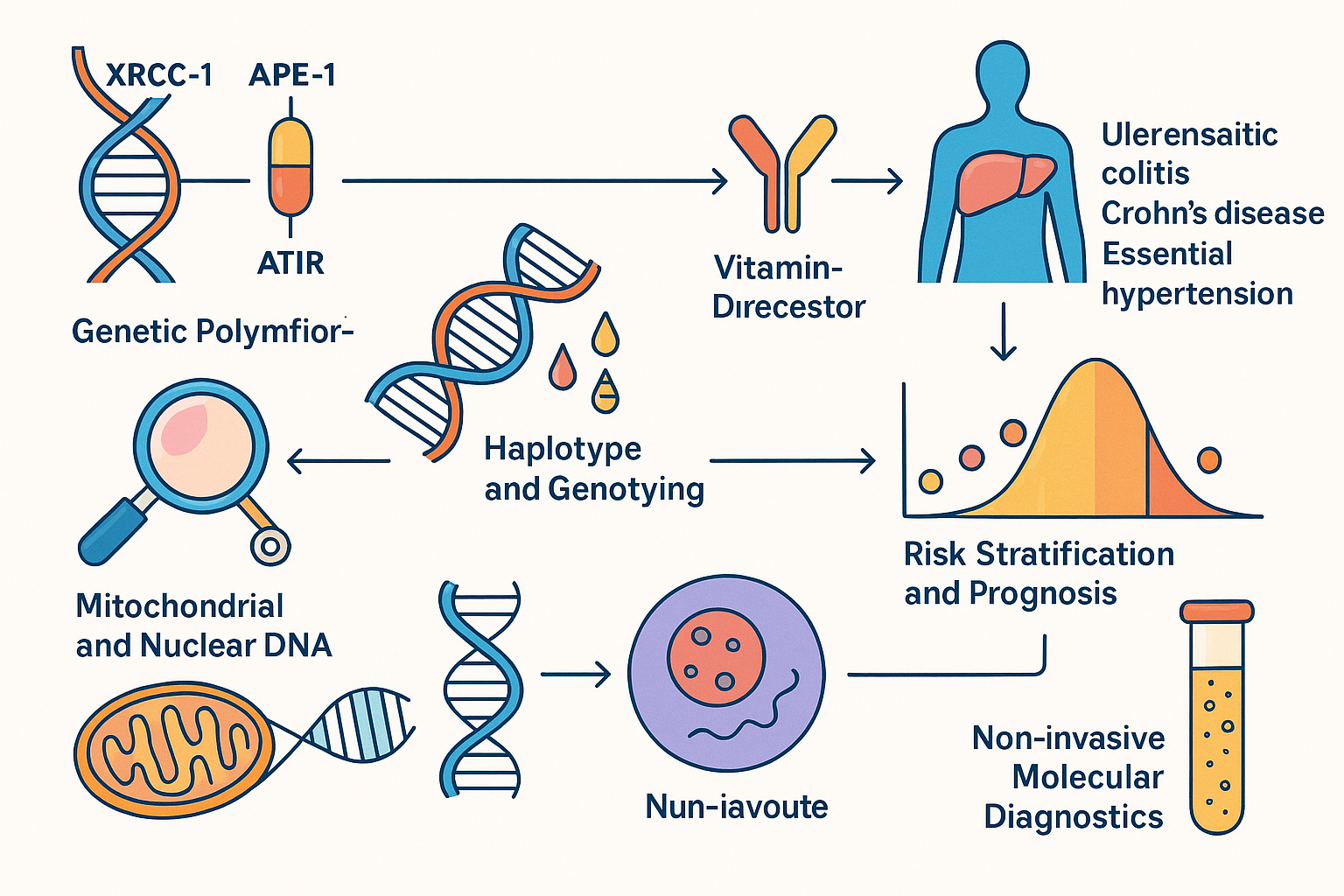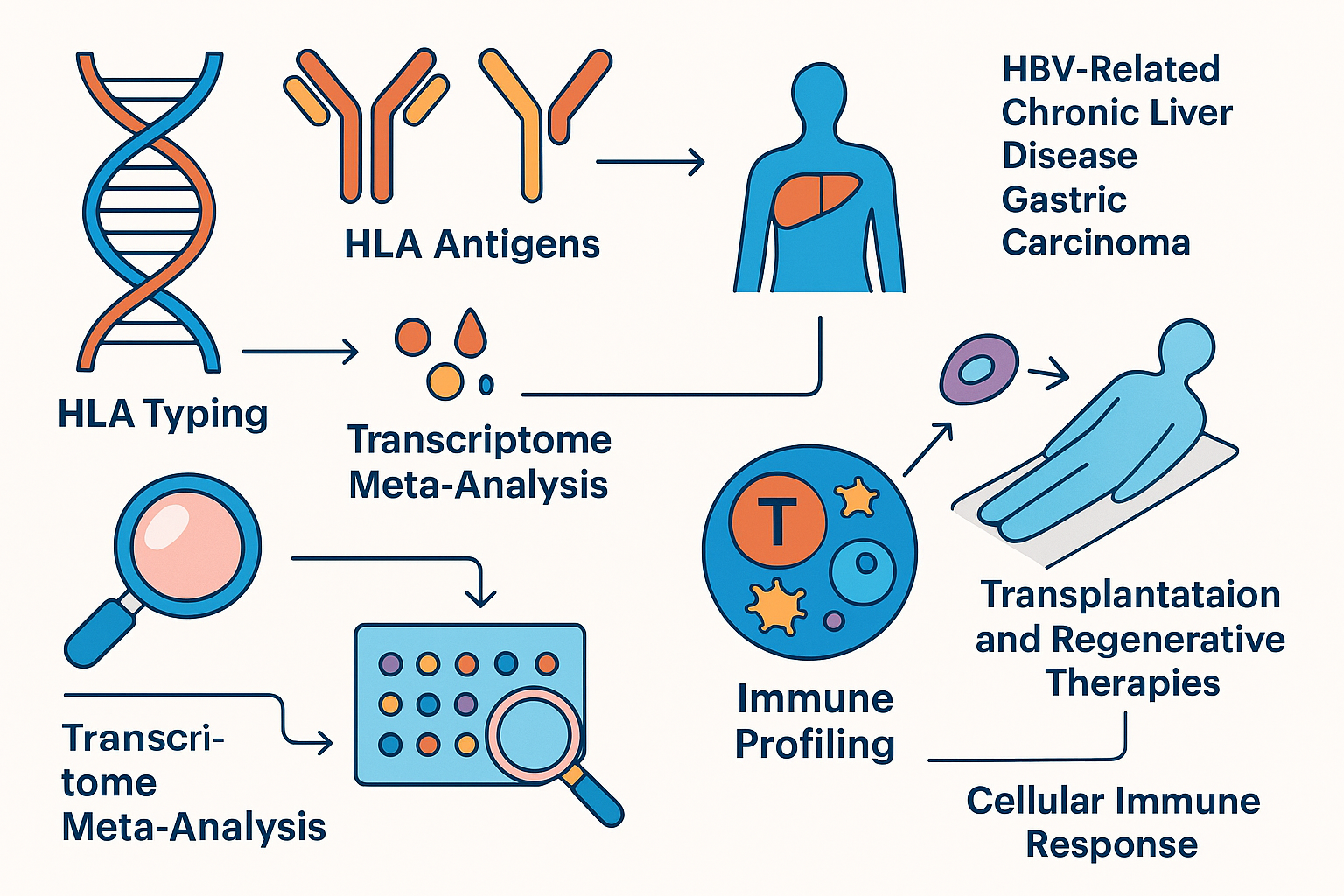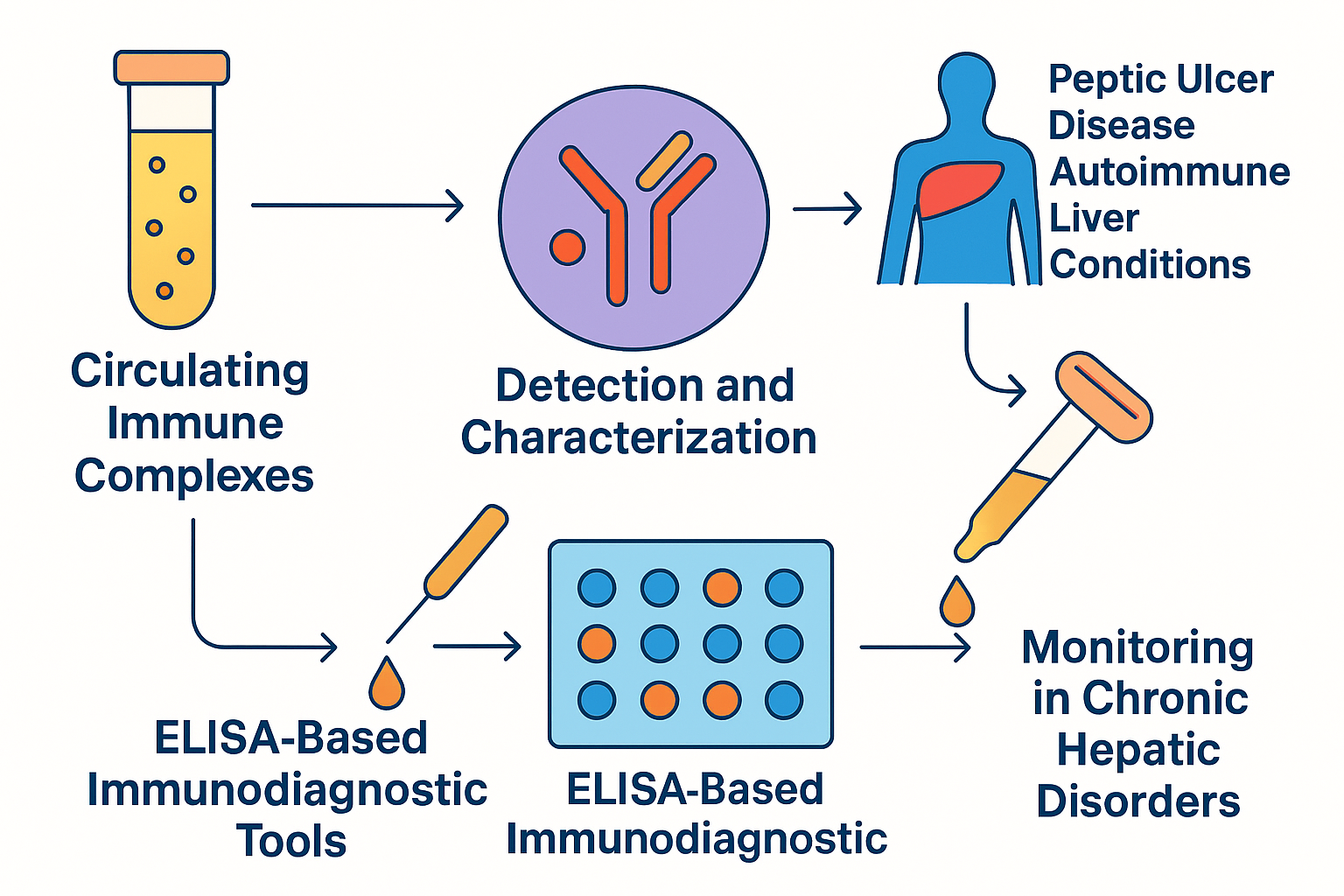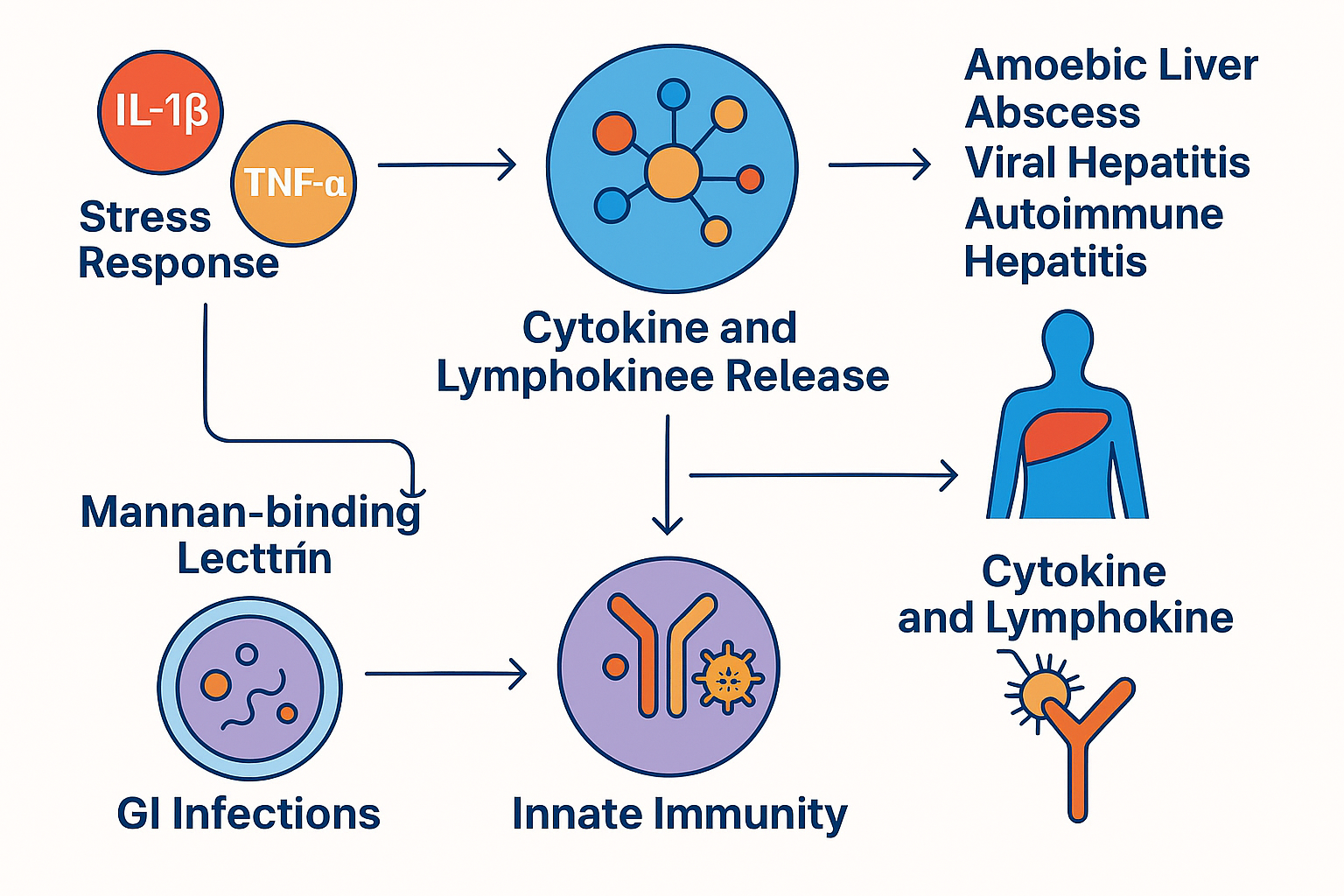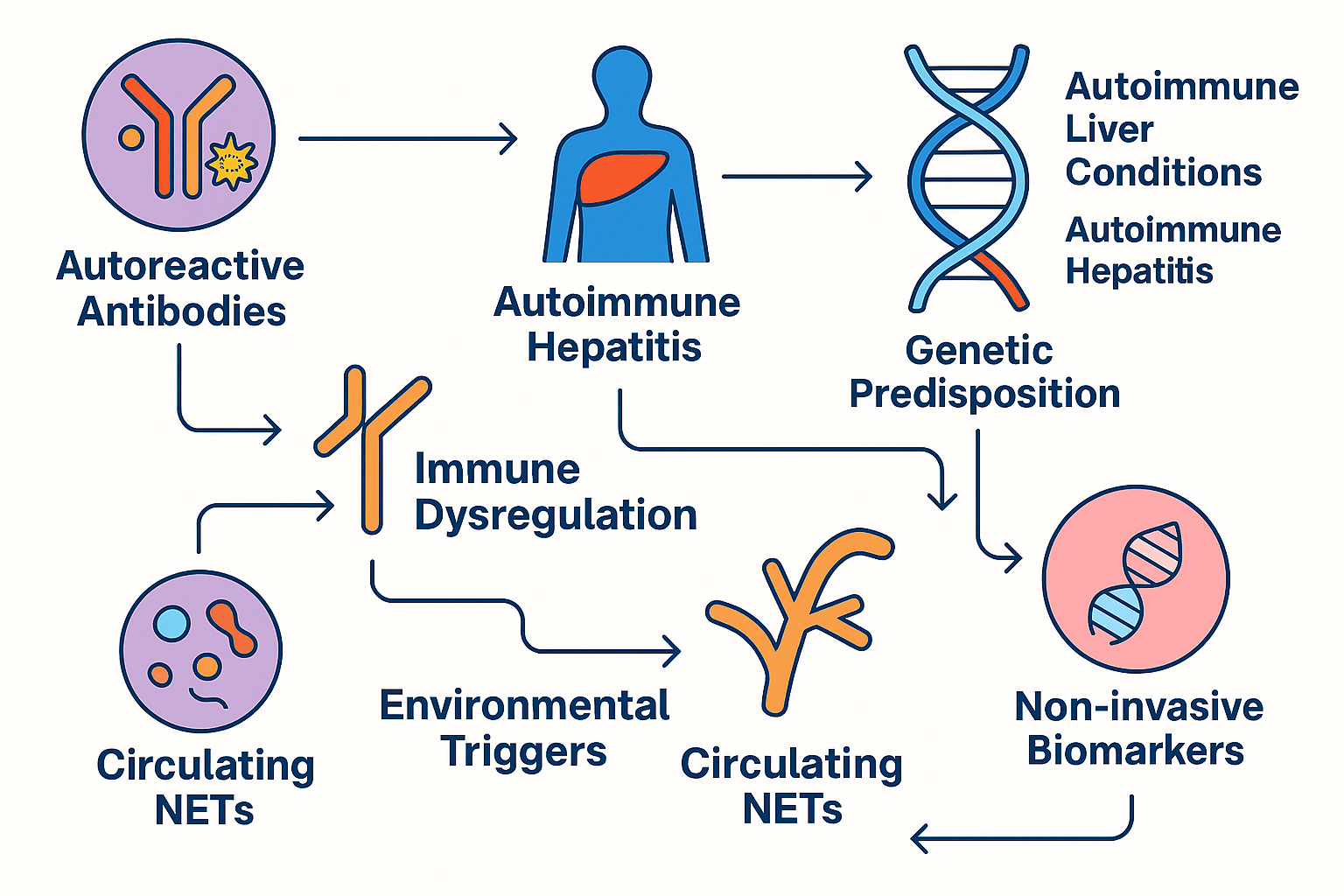Molecular Genetics & Immunology
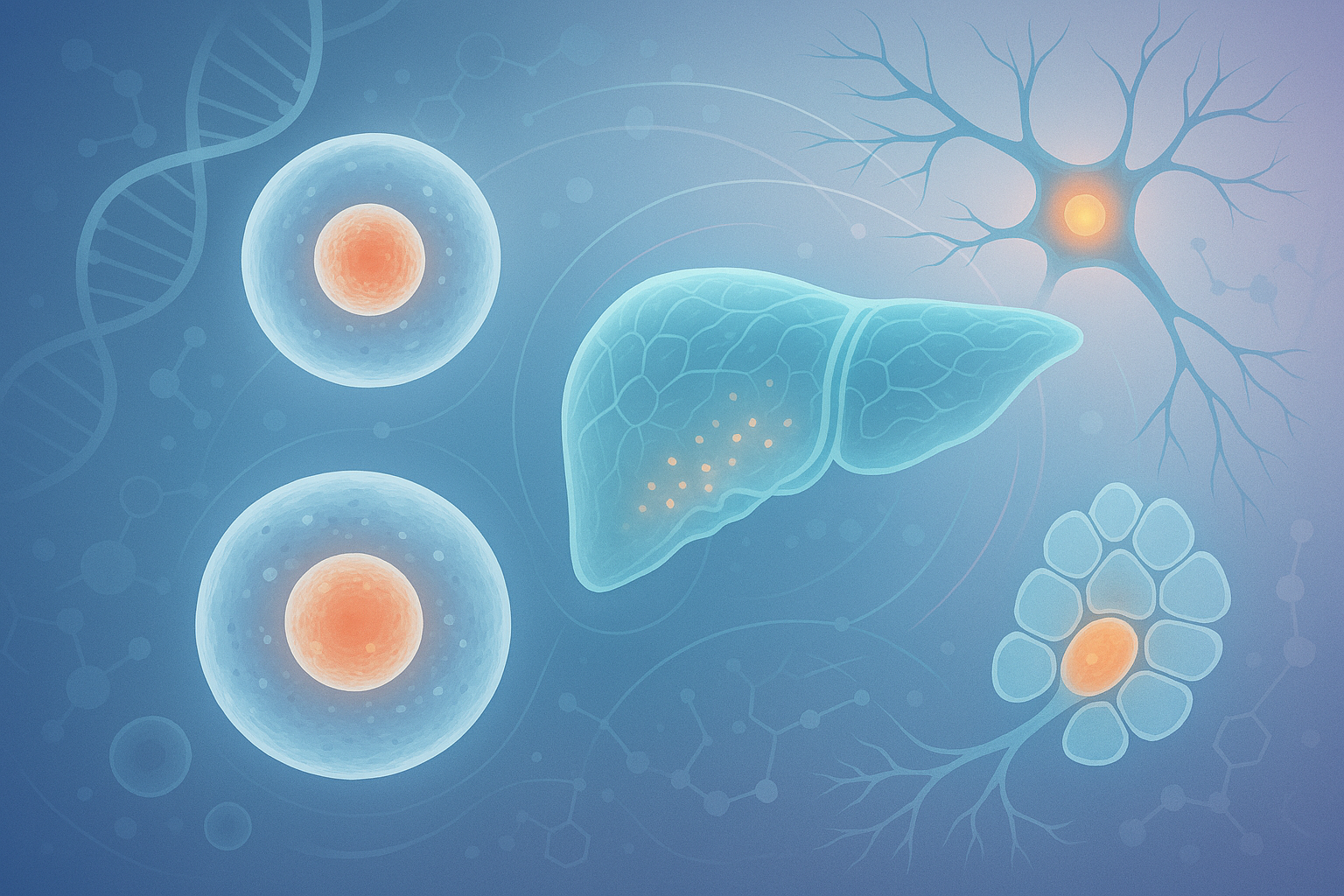
The Centre for Liver Research and Diagnostics (CLRD) stands at the forefront of innovation in Molecular Genetics and Immunology, a specialization that has transformed the way liver and gastrointestinal (GI) diseases are understood and managed. Over the past four decades, CLRD has evolved into a global leader in translational research, combining molecular insights with immunological expertise to deliver precision medicine solutions for complex hepatic and GI conditions.
This specialization is built on the principle that every disease has a molecular signature and an immune footprint. By decoding these intricate patterns, CLRD enables clinicians to move beyond conventional diagnostics and adopt predictive, preventive, and personalized approaches. Our work bridges the gap between basic science and clinical application, ensuring that patients benefit from the latest advancements in genomics, immunology, and biomarker discovery.
Why Molecular Genetics & Immunology Matters
Liver and GI disorders often present with overlapping symptoms, making accurate diagnosis and targeted treatment challenging. Genetic predispositions, immune dysregulation, and environmental triggers play a critical role in disease onset and progression. Understanding these factors is essential for:
- Early detection of high-risk individuals
- Personalized therapeutic interventions
- Monitoring disease progression and treatment response
- Developing novel immunomodulatory and gene-based therapies
CLRD’s specialization addresses these needs through state-of-the-art molecular platforms, advanced immunological assays, and a robust research ecosystem that integrates genomics, proteomics, and immunomics.
Research-Driven Expertise
Our research journey, spanning more than 40 years and hundreds of peer-reviewed publications has significantly advanced global knowledge in hepatology and gastroenterology. CLRD’s contributions include:
- Discovery of genetic polymorphisms linked to liver and GI diseases
- Identification of immune signatures in autoimmune and inflammatory conditions
- Development of non-invasive biomarkers for real-time disease monitoring
- Innovative diagnostic tools for early detection and prognosis
This expertise is not theoretical, it is validated by decades of clinical application, making CLRD a trusted partner for hospitals, research institutions, and healthcare providers worldwide.
Core Capabilities Defining This Specialization
Our Molecular Genetics & Immunology division is structured around five strategic pillars:
Genetic Markers in Liver and GI Diseases
Advanced genotyping and haplotype analysis for conditions like ulcerative colitis, Crohn’s disease, viral hepatitis, and autoimmune liver disorders.HLA Typing and Immune Profiling
Comprehensive immune mapping to predict disease susceptibility, transplant compatibility, and immune response modulation.Circulating Immune Complexes
Detection and characterization of CICs as diagnostic and prognostic markers in chronic liver and GI conditions.Cytokine and Lymphokine Studies
Functional analysis of pro-inflammatory and anti-inflammatory cytokines, enabling targeted immunotherapy strategies.Autoimmune Liver Conditions
Identification of autoreactive antibodies and immune dysregulation pathways, paving the way for precision immunomodulation.
Our extensive research portfolio—spanning over four decades—has contributed significantly to global understanding of genetic and immunological determinants in liver pathology. CLRD’s work encompasses genetic polymorphisms, immune signatures, cytokine networks, and autoimmunity, translating these insights into clinical applications. The following core capabilities define this specialization:
Genetic Markers in Liver and GI Diseases
CLRD identifies genetic polymorphisms (XRCC-1, APE-1, AT1R, Vitamin D receptor) linked to liver and GI disorders. Advanced haplotype and genotyping protocols aid risk assessment, while mitochondrial and nuclear DNA quantification enables non-invasive diagnostics in liver failure.
HLA Typing and Immune Profiling
CLRD’s research on HLA antigen frequency links HBV-related liver disease and gastric carcinoma. Advanced immune profiling and transcriptome analysis reveal signatures in autoimmune and IBD conditions, while cellular immune studies enhance transplant compatibility and reduce rejection.
Circulating Immune Complexes
CLRD pioneered detection of circulating immune complexes (CICs) in peptic ulcer and autoimmune liver diseases, offering insights into disease progression. ELISA-based immunodiagnostic tools were developed for monitoring CICs in chronic hepatic disorders.
Cytokine and Lymphokine Studies
CLRD’s cytokine research maps IL-1β, TNF-α and lymphokine patterns in liver abscess, viral and autoimmune hepatitis. Studies link cytokine dysregulation to sepsis, ulcerative colitis, and ankylosing spondylitis, while MBL variant analysis advances understanding of innate immunity in GI infections.
Autoimmune Liver Conditions
CLRD identifies autoreactive antibodies and immune dysregulation markers in autoimmune hepatitis and biliary cirrhosis. Studies explore genetic and environmental triggers, while non-invasive biomarkers like circulating NETs and cell-free DNA enable real-time monitoring of disease progression.
Translational Impact
CLRD’s molecular genetics and immunology research has bridged the gap between bench and bedside, enabling:
- Early detection of genetic susceptibility and immune dysfunction.
- Personalized treatment strategies based on molecular and immunological profiling.
- Innovative diagnostic platforms for non-invasive monitoring of disease progression.
- Supportive modalities for advanced therapies, including stem cell transplantation and bioengineered organ systems.
The Molecular Genetics & Immunology specialization at CLRD represents a synergistic blend of genetic insights and immune system dynamics, driving precision medicine in hepatology and gastroenterology. Our research-backed capabilities empower clinicians with predictive, preventive, and personalized solutions, ensuring better outcomes for patients with complex liver and GI disorders. As we move forward, CLRD remains committed to expanding molecular diagnostics, refining immunotherapeutic approaches, and pioneering translational innovations that redefine the future of liver care.

